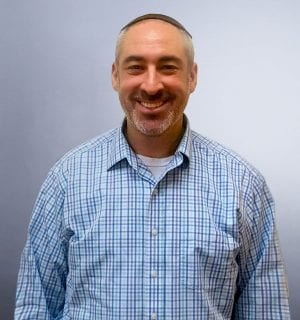News and Insights
When Innovation Saves Lives – Now Is the Time
March 24, 2020
Gosh, you’d think that after 25+ years in tech, nothing would surprise me. You’d think, after the smartphone, after autonomous vehicles, after consumer drones, for goodness sake, I’d barely flinch when new inventions burst upon the scene.
But it’s not true. I’m amazed all the time. It’s one of the reasons I love what I do. But then, every once in a while, an innovation and an acute need intersect, and I get inspired.
When coronavirus introduced itself to all of us, and the rules of just about everything changed. I recently wrote about the wonderful opportunity we all have, how we can look at this pandemic—that has forced us all inside and away from each other—as a catalyst for creativity and development of new perspectives.
And now, with all those years of communicating on behalf of cutting-edge technologies behind me, this virus/disease is taking huge chunks out of the Dow Jones Industrial Average, my own personal savings and, yes, my ability to go to the gym.
And yet, I find myself nothing short of inspired.
I’ll explain …
Sitting here in my makeshift office in a corner of my bedroom, I have no fewer than 10 members of my team communicating today on behalf of Israel-based companies that are front-and-center in the global effort to bring down this pandemic.
One of them, EarlySense, has a technology that is protecting medical workers—yes, like all of those wonderful people whose photos we’ve seen, bruised by masks they’ve had to wear—from their patients’ possible contamination. EarlySense is a remote, contact-free monitoring device, which helps physicians, nurses and other front-liners track from afar their patients’ heart rate, respiratory condition and other vital signs. The ability to know how their patients are doing, and remain a bit further apart, is sparing them from running through now scarce disposables faster than needed.
The second, Datos Health, is seemingly just a piece of software. And you’d think, “Well, how much can software do here?” It turns out, a lot, especially when you consider how precious each hospital bed is right now. Datos enables patients to record their conditions in an outpatient setting—yes, from home—so hospital beds can remain open and available for those people in more dire need of ongoing hospital services. By recording their condition updates, a coronavirus patient can keep physicians, nurses and other health practitioners 100% up-to-date without having to be admitted to the hospital.
A third, Belong. Life, is providing something that Tom Hanks specifically mentioned when he spoke about his original concept for Cast Away, a film in which his character finds himself alone on an island, with no food, no water, no shelter, no fire and no … companionship.
Yes, companionship, right up there with food and water. (Sorry for the “ad,” but) Belong has created the world’s largest connected cancer community. The platform enables people who are confronting the disease access to medical information, clinical trials and community. And it turns out that community is as vital as information and trials. People have an innate need to connect with other people. So now, Belong has created a sub-community focused on cancer patients dealing with COVID-19. A reassuring idea, and just as meaningful to our world today as remote monitoring or patient management software.
All of these are amazing innovations, and they’re saving lives.
Of course, healthtech advances forward thanks to a successful real-world clinical setting use, and for that we must thank Sheba Medical Center, another Israeli innovator—a hospital system that is selecting continually the best a nation known globally for innovation has to offer by running trials and test implementations. That was the case here with both EarlySense and Datos. Sheba implemented them, it worked, and now US health care systems are doing the same.
It’s inspiring. It’s life-sustaining. It’s healthtech that change lives and, at this complex time, offers hope.
Fortunately, communication is a crucial part of the health ecosystem. We must communicate how these innovations can impact the world with no less passion than those who do the innovating. It’s a privilege and an honor, and it is also a responsibility. One my team takes seriously.
Eventually, this global crisis will pass, the world will put the pieces back together, and we will move on to other things.
Until then, we communicators have a job to do. In addition to being inspired, we must inspire others to take action, innovate and implement solutions that will help us recover—individually and as a global community—as quickly as possible.
